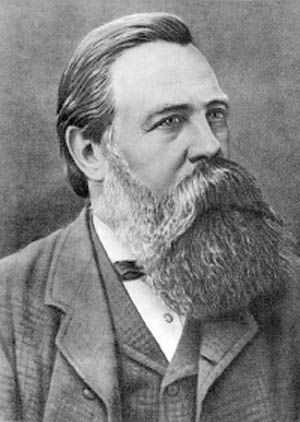Everything must justify its existence before the judgment seat of Reason, or give up existence.

"Friedrich Engels" was a German social science/social scientist, author, political theorist, Philosophy/philosopher, and father of Marxism/Marxist theory, together with Karl Marx. In 1845 he published The Condition of the Working Class in England in 1844/The Condition of the Working Class in England, based on personal observations and research in Manchester.
In 1848 he co-authored The Communist Manifesto with Karl Marx, though he also authored and co-authored (primarily with Marx) many other works, and later he supported Marx financially to do research and write Das Kapital. After Marx's death, Engels edited the second and third volumes. Additionally, Engels organized Marx's notes on the "Theories of Surplus Value," which he later published as the "fourth volume" of Capital. He has also made important contributions to family economics.
If you enjoy these quotes, be sure to check out other famous philosophers! More Friedrich Engels on Wikipedia.All history has been a history of class struggles between dominated classes at various stages of social development.
By bourgeoisie is meant the class of modern capitalists, owners of the means of social production and employers of wage labor. By proletariat, the class of modern wage laborers who, having no means of production of their own, are reduced to selling their labor power in order to live.
An ounce of action is worth a ton of theory.
The state is not abolished, it withers away.
The report of the Central Commission relates that the manufacturers began to employ children rarely of five years, often of six, very often of seven, usually of eight to nine years; that the working day often lasted fourteen to sixteen hours, exclusi.
Some laws of state aimed at curbing crime are even more criminal.
People think they have taken quite an extraordinarily bold step forward when they have rid themselves of belief in hereditary monarchy and swear by the democratic republic. In reality, however, the state is nothing but a machine for the oppression of one class by another, and indeed in the democratic republic no less than in the monarchy.
Look at the Paris Commune. That was the Dictatorship of the Proletariat.
The state is nothing but an instrument of oppression of one class by another--no less so in a democratic republic than in a monarchy.
It would appear that the natural frontier of Russia runs from Dantzic or perhaps Stettin to Trieste.
Copyright © 2024 Electric Goat Media. All Rights Reserved.